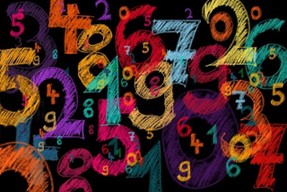
Learning to complete maths tasks can be a challenging process for many children. Having difficulty making progress in maths does not necessarily mean that a child has a specific learning disorder in maths. There are a number of reasons that a child finds it challenging including poor maths instruction, less practice with skills than peers, maths anxiety, memory or reading delays. If one of these reasons is the cause of the difficulty targeted and intensive support often responds in maths skill growth for the child. If there is no clear reason for a delay or the child responds more slowly to intervention than peers, then they may have a specific learning disorder in maths. Formally this is called a Specific Learning Disorder with Impairment in Mathematics but is commonly known as dyscalculia.
What is dyscalculia?
Dyscalculia is a condition that affects a child’s ability to understand simple maths concepts, manipulate numbers, and learn maths facts and procedures. This difficulty is unexpected given their cognitive abilities and academic skills in other areas. Dyscalculia may be seen at different levels depending on the age of the child, from difficulty understanding concepts such as bigger or smaller to being able to complete abstract maths computations.
Dyscalculia is not as well understood at dyslexia. Estimates of impact on children vary between 3 and 10% of the population. It is neurobiological in origin and studies have shown differences in how the brain functions as well as in brain structures in people with dyscalculia. The maths difficulties are not caused by intellectual disability, vision difficulties, or hearing deficits. There is a strong hereditary component, and one parent has often experienced difficulty with school themselves. Dyscalculia is a lifelong difficulty but with appropriate supports and strategies children can improve their mathematical skills, manage challenges, and achieve well at school and beyond.
How can I tell if my child has dyscalculia?
Dyscalculia impacts children in different ways but there are some common signs that you can look for. If your child has difficulty with remembering maths facts, mental maths, understanding maths vocabulary, learning tables, maths fluency (needing to work out sums slowly or with concrete supports), place value, and completing multistep problems then they may have a maths learning disorder. Some children can solve maths problems correctly with the correct procedure but they do so slowly and without fluency or confidence. The only way to tell for sure that your child has dyscalculia is through a formal evaluation with a psychologist. This evaluation should include a thorough investigation of their developmental history, input from their school, as well as cognitive and academic assessment. In addition, the child must have received at least 6 months of targeted and evidence-based intervention before a diagnosis can be given. It is helpful to rule out common issues such as vision and hearing prior to a psychological assessment.
If you have concerns that your child may have dyscalculia an assessment can be completed at Lifeworks Psychology. We can also provide support and advice for parents as they process their child’s diagnosis and make plans to meet the needs of their child.
We have appointments available immediately.
Call or email Lifeworks psychology today – (08) 9382 3645 admin@lifeworkspsych.com.au
